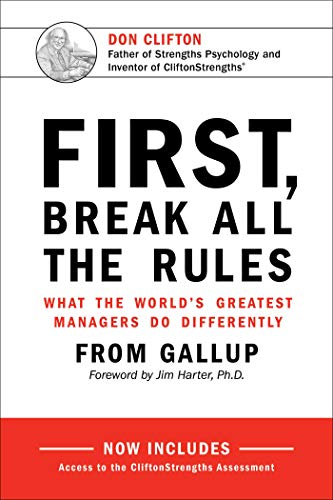
1

2

3

4

5
Whether it was through a group project in school, your first job, or someone in your family, we’ve all encountered leaders in our lives. Good ones are sure to inspire you, challenge you, and hold you to your highest potential. They’re strong communicators, or are charismatic, or have something intangible that makes you want to do everything they ask. You’ll remember good leaders forever. We all have stories of that English or Biology or Coding teacher who changed our lives. On the other end is the not-so-great leaders who are sure to make your life awful. The micro-managers. The absent ones. The ones that demand respect without giving any in return. A bad leader can make you dread going to work or school. They can send otherwise great workers running for the hills. They’re the ones who make it clear that leadership is a skill to be worked on rather than an inherent talent. Luckily for us all, there are many books to help us in our journey to be better leaders. Even if you’re
1
The carrot-and-stick punishment-reward leadership style of years ago is, to Pink, not nearly as successful as everyone thinks it is. Instead, leaders should cater to employee’s inherent drive through autonomy, passion, and control. They should let them create their own goals, follow what interests them, and appeal to their sense of accomplishment. Positive results are sure to follow.
2
If you’re the leader of a team, this is a must read to break down our biases and make our leadership more inclusive. Through stories from small neighborhoods or large institutions, Dr. Ebergardt presents the psychology behind the prejudices we hold and ways to work through them in a way that’s easy to understand.
3
This manual of leadership is a must-read for current and future managers. Through extensive examples, Kouzes and Posner present practices and traits of exemplary leadership in the current workplace. You’re sure to walk away with practical next steps to develop your leadership skills and make your employees shine.
4
What makes successful people, well, successful? Gladwell explores exactly that by delving into backgrounds, upbringing, and timings of those the best in their fields. It’s important for managers to think about the factors that go into what makes a person successful, both those in their control and out. This book will teach you just that.
5
This one delves into the importance of the front-line manager. Those who can recognize what talents their employees have and help them build upon their unique strengths to get their teams to thrive. Through studies of supervisors, major companies, and small-level managers, this book explores how leaders can break rules to get the best out of their people.

1
The carrot-and-stick punishment-reward leadership style of years ago is, to Pink, not nearly as successful as everyone thinks it is. Instead, leaders should cater to employee’s inherent drive through autonomy, passion, and control. They should let them create their own goals, follow what interests them, and appeal to their sense of accomplishment. Positive results are sure to follow.

2
If you’re the leader of a team, this is a must read to break down our biases and make our leadership more inclusive. Through stories from small neighborhoods or large institutions, Dr. Ebergardt presents the psychology behind the prejudices we hold and ways to work through them in a way that’s easy to understand.

3
This manual of leadership is a must-read for current and future managers. Through extensive examples, Kouzes and Posner present practices and traits of exemplary leadership in the current workplace. You’re sure to walk away with practical next steps to develop your leadership skills and make your employees shine.

4
What makes successful people, well, successful? Gladwell explores exactly that by delving into backgrounds, upbringing, and timings of those the best in their fields. It’s important for managers to think about the factors that go into what makes a person successful, both those in their control and out. This book will teach you just that.

5
This one delves into the importance of the front-line manager. Those who can recognize what talents their employees have and help them build upon their unique strengths to get their teams to thrive. Through studies of supervisors, major companies, and small-level managers, this book explores how leaders can break rules to get the best out of their people.
© Five Books 2026